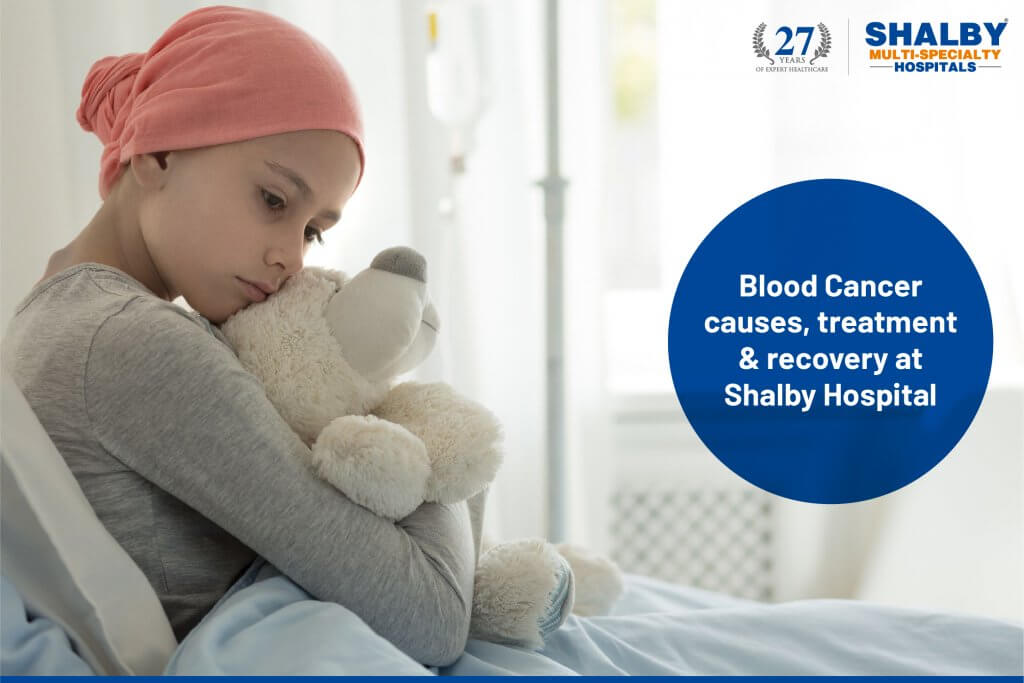
Blood cancer is a group of cancers that wreak havoc on a patient’s health and well-being, often leading to death if left untreated. The fact of the matter is that blood cancer treatment is both widely accessible and continuously changing. The recovery rates are increasing as treatment modalities keep improving. Recent medical advancements have found certain gene mutations that can be targeted for a smooth and responsible recuperation, providing the intervention is started early enough.
Blood cancer is a type of cancer that develops from any type of blood cell and can damage any organ in the body. Blood cancer is typically associated with impaired production of normal blood components and/or dysfunction of blood components in the bone marrow and lymphatic system of the body, resulting in lower immunogenicity and, in some cases, decreased platelet numbers and hemoglobin, which can lead to an increased risk of infection, bleeding propensities, and tiredness or lethargy. Lymphoma node proliferation can appear as nodules around the neck or other organs.
Blood malignancies can be categorized into numerous types based on the cell of origin or the compromised tissues, as well as the difficulties they cause.
Other less frequent blood cancers include chronic myelomonocytic leukaemia (CMML), primary myelofibrosis (PMF), and other myeloproliferative neoplasms (MPNs) such as polycythemia vera, fundamental thrombocytosis, and some other rare blood cancers.
Symptoms vary depending on the type of blood cancer, however, they are usually non-specific (common symptoms). These are a few frequent symptoms.
Bone marrow transplantation is recommended by top blood cancer specialists as one of the most effective therapies for blood cancer. The doctor extracts cells from the bone marrow and injects them into the bloodstream during a bone marrow transplant procedure. It produces new red blood cells to replace malignant cells in the body. Furthermore, you may be required to visit the hospital at least three to four times every week.
A cure for blood cancer is always hoped for, and it is possible in a considerable number of cases. Chemotherapy is another treatment for this. However, after successful chemotherapy, patients should maintain a healthy lifestyle, follow doctors’ instructions, and undergo tests and physical examinations on a regular basis. There may be certain challenges following chemotherapy, which should be discussed with your doctor and adequately addressed. These are:
Organ functioning, such as heart functioning :
If enough heed is not paid to, it can adversely impact :
Shalby Hospitals is one of the premier cancer treatment centres in Jaipur, providing complete cancer treatment. The Centre has cutting-edge technology, world-class infrastructure, and highly skilled staff of Surgical, Medical, and Radiation Oncologists who collaborate to deliver exceptional individualized care. Patients have access to the full range of cancer therapies, surgeries, and specialists, many of whom are world-renowned experts in their fields. New technology at the centre has enhanced cancer diagnosis and treatment, ensuring that patients receive the most up-to-date and advanced cancer care.
Our Goal Is To Provide:
In our modern lives, the adage “Sitting is the New Smoking” has become increasingly relevant. But beyond this familiar warning lies a more alarming truth: our daily choices significantly impact our health. The combination of prolonged inactivity, indulgence in junk food, smoking,...
India is one of the fastest-growing economies in the world, with a population of over 1.3 billion people. However, this economic and demographic growth also brings many challenges for the healthcare system, especially in terms of managing the burden of non-communicable diseases...
Just like the women were oppressed for centuries together, the story of men is no exception. While women have been the primary victims of gender-based oppression, men have also been subjected to unfair and unrealistic expectations that have caused them physical and...